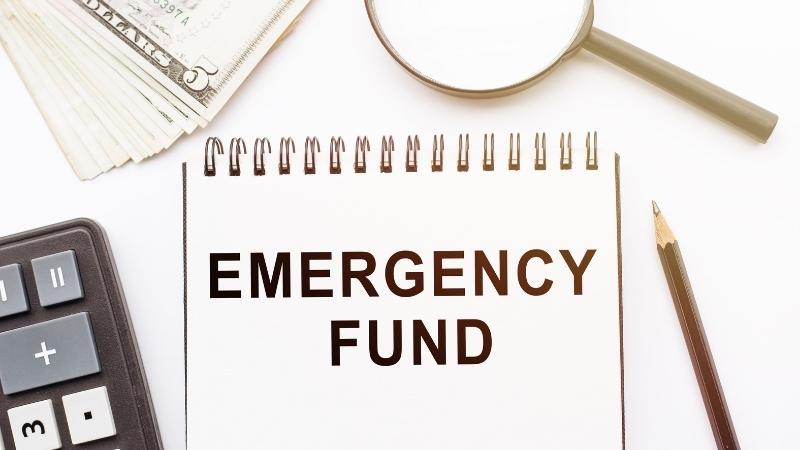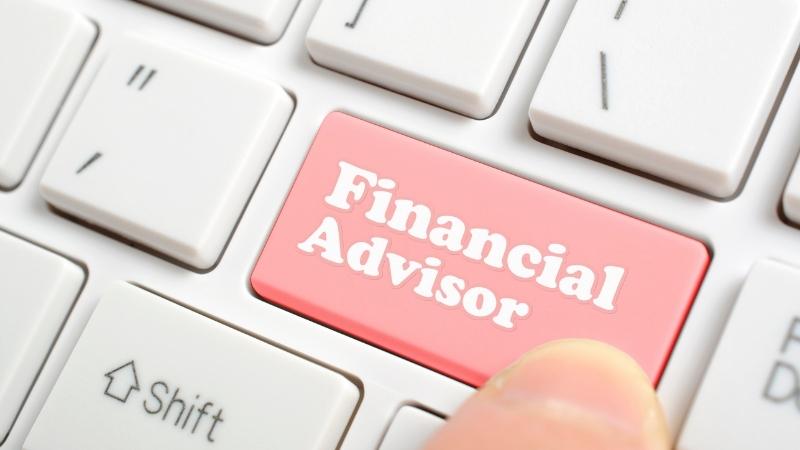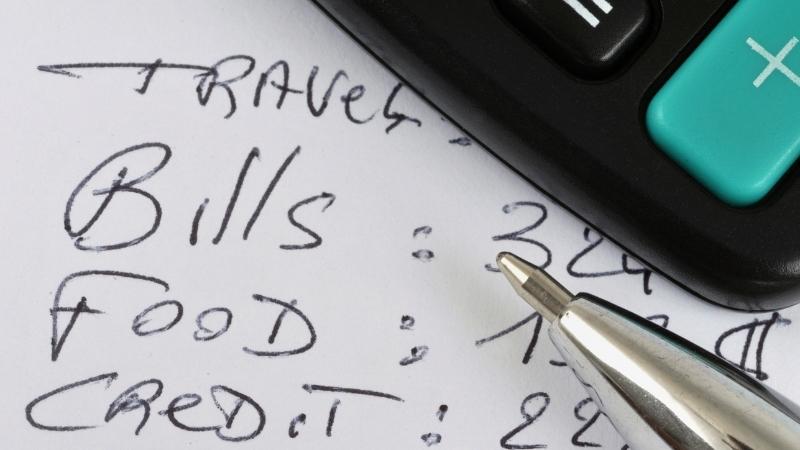
Are you financially sound? Money is one of the most important aspects of our lives. It can dictate our happiness, our stress levels, and – ultimately – our success. While some people seem to have a natural knack for money management, others find it more difficult to stay financially sound.
If you’re looking for tips to improve your financial health, look no further! In this blog post, we will discuss 18 ways that you can be more financially responsible and secure in your future.
Pin it 😎

What does being financially sound mean?
But before we get started, let’s first define what it means to be financially sound. Financial soundness is the ability to maintain a good credit score, save money regularly, and invest for the future. It also means being aware of your spending habits and knowing when to cut back.
Now that we know what it takes to be financially sound, let’s get started with our tips!
Here are 18 ways to improve your financial health:
Financially sound Tip #01: Understand your credit score and work to improve it

Your credit score is one of the most important numbers in your life. It dictates whether or not you’ll be able to get a loan, buy a house, or even land a job.
So, if you don’t know your credit score, now is the time to find out. You can get a free credit report from annualcreditreport.com.
Financially sound Tip #02: Make a budget and stick to it
One of the best ways to stay on top of your finances is to create a budget and stick to it. Determine how much money you need for essentials like rent, food, and transportation.
Then, figure out how much you have left over for discretionary spending. Once you have a budget in place, make sure to stick to it as closely as possible.
Financially sound Tip #03: Learn about financial planning
If you want to get ahead financially, it’s important to invest in yourself. Take some time to learn about personal finance and investing. There are a number of online courses available, or you could even pick up a book or two on the subject.
The more you know about financial planning, the better equipped you’ll be to make smart decisions with your money.
Financially sound Tip #04: Live below your means
One of the best ways to stay financially sound is to live below your means. In other words, don’t spend more money than you have coming in.
This can be easier said than done, but it’s important to remember that lifestyle inflation can be a killer of financial stability. If you want to maintain your current lifestyle, make sure your income keeps pace with your spending.
More reading – Living below your means
Financially sound Tip #05: Have an emergency fund

Life is full of surprises, and many of them can be expensive. That’s why it’s important to have an emergency fund to cover unexpected costs.
A good rule of thumb is to have enough money saved to cover three to six months of living expenses.
This way, if you lose your job or have a medical emergency, you’ll have the financial cushion you need to stay afloat.
Financially sound Tip #06: Invest money wisely
Investing is one of the smartest things you can do with your money. When done correctly, investing can help you grow your wealth, achieve financial independence, and reach your long-term financial goals.
However, it’s important to note that not all investments are created equal. Be sure to do your research before investing any money.
Easily save and invest with Acorns, plus get a FREE bonus investment through this link!
Financially sound Tip #07: Pay off debt as quickly as possible
If you’re carrying debt, it’s important to pay it off as quickly as possible. The longer you carry debt, the more interest you’ll accrue, and the harder it will be to get ahead financially.
Make a plan to pay off your debts, starting with the ones with the highest interest rates. Once you’re debt-free, you’ll be in a much better position to save and invest for the future.
Financially sound Tip #08: Stay disciplined with your spending
One of the most important aspects of financial health is staying disciplined with your spending. It can be easy to overspend, especially if you use credit cards.
But if you want to be financially sound, you need to be mindful of your spending and make sure it aligns with your overall financial goals.
Financially sound Tip #09: Make saving a priority
If you want to be financially sound, you need to make saving a priority. It’s important to have money saved for both short-term and long-term goals.
An emergency fund is a good place to start, but you should also be saving for retirement, a down payment on a house, or other long-term financial goals.
More reading – How to save $5000 in 3 months
Financially sound Tip #10: Track your Net worth

It’s important to track your net worth so you can see how much progress you’re making. You can use a simple Excel spreadsheet or one of the many online tools available. I recommend Personal Capital because it’s free and easy to use.
Your net worth is simply your assets – your savings, your home equity, and your investments – minus your liabilities. Tracking your net worth gives you a good snapshot of your financial health and progress.
If you don’t know where to start, try this simple exercise:
List out all of your assets and their current values. This includes your savings, your home equity, and your investments.
Next, list out all of your liabilities. This includes things like credit card debt, student loans, and mortgages.
Finally, subtract your total liabilities from your total assets. This is your net worth.
If you want to get really fancy, you can track your net worth by asset class. This means breaking down your assets into categories like cash, stocks, bonds, and real estate.
This can give you a good idea of where your money is working hard for you and where it might be time to make some changes.
There you have it! Tracking your net worth is a simple but important way to stay on top of your finances. Give it a try and see how much progress you can make in the months and years ahead.
Financially sound Tip #11: Invest in yourself
One of the best investments you can make is in yourself. This can mean taking courses, attending seminars, or reading books to improve your skills. It can also mean investing in your health with regular exercise and healthy eating habits.
The benefits of investing in yourself are many. First, it can help you earn more money. With improved skills comes the potential for higher earnings.
Second, it can help you improve your health. This can lead to lower healthcare costs and longer, healthier life. Finally, it can help you reduce stress and enjoy a more positive outlook on life.
So don’t wait – start investing in yourself today! You’ll be glad you did.
Financially sound Tip #12: Invest in a good financial advisor

If you’re not sure where to start with investing, or if you want help staying on track, consider working with a financial advisor.
A good financial advisor can provide valuable guidance and direction when it comes to your finances. They can also help you develop and stick to a budget, set goals, and make smart investment choices.
Of course, not all financial advisors are created equal. It’s important to do your homework and find an advisor that you trust and feel comfortable with. Be sure to ask lots of questions and get a clear understanding of their fees before making any decisions.
If you’re serious about getting your finances in order, working with a financial advisor can be a great step in the right direction.
Financially sound Tip #13: Invest in a good accountant
Another important investment you can make is in a good accountant. A good accountant can save you money by helping you maximize your deductions and tax breaks.
They can also help you keep organized records of your income and expenses. This can save you a lot of time and hassle come tax time.
Of course, not all accountants are created equal. It’s important to do your homework and find an accountant that you trust and feel comfortable with.
Be sure to ask lots of questions and get a clear understanding of their fees before making any decisions.
If you’re serious about getting your finances in order, working with a good accountant can be a great step in the right direction.
Financially sound Tip #14: Learn how to be frugal
One of the best ways to save money is to learn how to be frugal. Frugality doesn’t mean being cheap – it simply means being mindful of your spending and making smart choices with your money.
There are many ways to be frugal. One way is to cook at home more often instead of eating out. Another way is to shop at thrift stores or garage sales for clothing and household items. And finally, you can cut back on unnecessary expenses like cable TV or expensive coffees.
The key to being frugal is to find what works for you. There’s no one-size-fits-all approach – it’s all about finding the right balance for your own unique circumstances. So start experimenting and see how much money you can save!
More reading – Frugal living on one income
Financially sound Tip #15: Review your expenses regularly

We all have different spending habits, which is why it’s important to regularly review your expenses and make changes where necessary.
If you find that you’re spending more than you can afford, or if your spending is putting a strain on your finances, then it’s time to make some changes.
Here are a few tips to help you get started:
- Make a list of all your regular expenses, including how much you spend each month on things like rent, food, transportation, and entertainment.
- Take a close look at your spending habits and see where you can cut back. Maybe you can cook more meals at home instead of eating out, or take public transportation instead of driving.
- Make a budget and stick to it. Track your expenses so you know where your money is going.
- If you’re having trouble managing your expenses, there are plenty of resources out there to help you, including financial advisors and budgeting apps. Don’t be afraid to seek help if you need it.
Making small changes in your spending habits can make a big difference in your financial situation. By Reviewing your expenses regularly, you can make sure you’re staying on track and on budget.
Financially sound Tip #16: Think outside the box
There are a lot of different ways to save money, and sometimes you have to think outside the box. For example, if you’re looking for a new car, you might consider buying a used car instead of a new one. Used cars are often much cheaper than new cars, and they can still be in good condition.
If you’re looking for ways to save on your housing costs, you might consider renting an apartment instead of buying a house. Renting is usually much cheaper than buying, and it can be a good option if you’re not ready to commit to a long-term mortgage.
There are endless possibilities when it comes to saving money, so don’t be afraid to get creative. Think outside the box and explore all your options. You might be surprised at how much you can save.
Financially sound Tip #17: Get Creative
One of the best ways to save money is to get creative. There are a lot of different ways to save on your everyday expenses, and you might be surprised at how much you can save by getting creative.
For example, if you’re looking for ways to save on your grocery bill, you might consider starting a garden or growing your own food. This can be a great way to get fresh, healthy food for less.
If you’re looking for ways to save on your transportation costs, you might consider carpooling or biking to work. This can be a great way to save on gas and reduce your carbon footprint.
There are endless possibilities when it comes to getting creative with your finances. So don’t be afraid to explore all your options and find the best way for you to save money.
Financially sound Tip #18: Seek financial advice
If you’re having trouble managing your finances, it’s important to seek financial advice. There are a lot of resources out there that can help you, including financial advisors, budgeting apps, and books on personal finance.
Don’t be afraid to seek help if you need it. There’s no shame in admitting that you need help with your finances. The sooner you get help, the better off you’ll be.
If you’re not sure where to start, there are a few good places to look for financial advice. You can start with your local library or bookstore. You can also find a lot of great resources online.
No matter where you turn for financial advice, make sure you’re getting advice from a reliable source. There are a lot of people out there who claim to be experts, but not all of them are. Do your research and make sure you’re getting advice from someone you can trust.
Conclusion: Tips to being financially sound
In conclusion, being financially sound is not easy but following these tips can help get you on the right track. Review your expenses, make a budget and stick to it, and get creative with your spending. And don’t forget to seek financial advice if you need it.
By following these tips, you’ll be well on your way to financial success. So don’t wait, start taking steps towards financial freedom today.
Over to you
What are some of your tips for staying financially sound? Share them in the comments below!
Latest articles
- Why is Personal Finance Dependent Upon Your Behavior?
- Hosting an Online Garage Sale: Go from Clutter to Cash now
- 11+Cheap(or Free) things to do in retirement: Do more with less!
- Coast FIRE: Path to Financial Independence with Less Sacrifice
- Cash Stuffing Method: The Ultimate Financial Hack You Need to Know